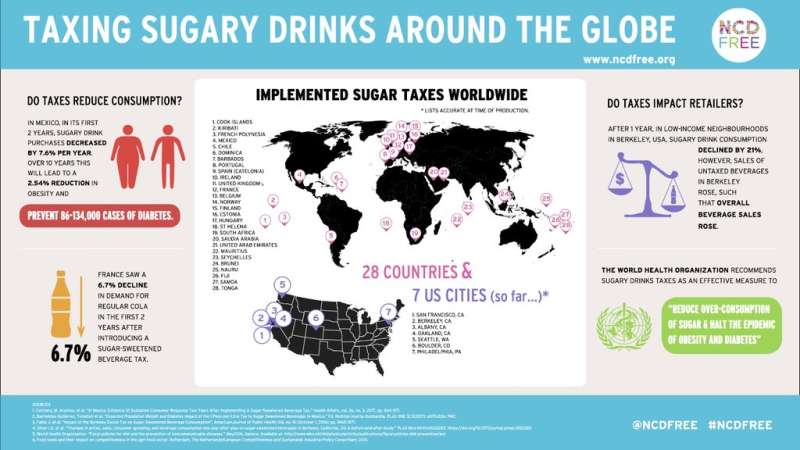In late 2017, the United Arab Emirates joined 27 countries and 7 US cities in taxing sugary drinks.
Sugary carbonated drinks, energy drinks, and other similar products are fueling the obesity and diabetes epidemic. With the World Health Organization estimating that more than 1.9 billion adults (39 percent) are overweight, and 650 million (13 percent) are obese, an increasing body of evidence is wisely examining the factors that are contributing to these epidemics. To that end, sugary carbonated drinks have been implicated as a risk factor for Type 2 diabetes, obesity, heart diseases, tooth decay, and a variety of other health problems.
In the United Arab Emirates (UAE), the rising incidence of obesity and diabetes has been a cause for concern for the public as well as the government,with public advocacy calling for taxes on sugar carbonated drinks principally to improve public health and reduce obesity and diabetes. Recently, this concern has been discussed among Gulf States and transformed into concerted action with the UAE imposing a law on excise taxes on energy and fizzy drinks starting from October 1st, 2017. The prices of sugary carbonated drinks (for example, Coca-Cola Pepsi, Sprite, Fanta, Mountain Dew, etc.) are now 50 percent more expensive. Whereas, the retail price of energy drinks has increased 100 percent. This excise tax is set to discourage the consumption of products that have ruinous effects on the health of people, while generated revenue is expected to support advanced health services for the UAE community. Saudi Arabia took a similar measure earlier and other Gulf States are expected to implement excise taxes in early 2018.
In addition, and in an effort to stem the growing tide of non-communicable diseases, the UAE supports prolonged multifaceted approaches for addressing obesity and diabetes, and has sparked and implemented many health awareness and obesity related campaigns such as consumer education about the dangers of excess sugar consumption. Current campaigns include the "Dubai 30×30 fitness challenge" that aims to make Dubai one of the world's healthiest cities; the 2021 Healthy Children initiative; and the Junior Chef Program. These campaigns and activities are supported by the implementation and development of policies to improve access to nutritious and healthy food.
While support and recognition for the role of fiscal policies in combating obesity and diabetes gains momentum, it is still too early to judge the impact of this new price policy on consumer purchase and consumption in the UAE, including the nudging of consumers toward opting for healthier alternatives. Nevertheless, rising disease burden and escalating healthcare costs associated with poor diet necessitate bold action and solutions, which considerably justify government to employ price policy interventions based on evidence from modelling and other settings.
The implementation of the sugary drinks tax is one of the key measures included in the UAE national NCD action plan (2017- 2021). Accordingly, evaluation plans and sound implementation monitoring strategies are also expected this year.
Provided by Public Library of Science
This story is republished courtesy of PLOS Blogs: blogs.plos.org.





















